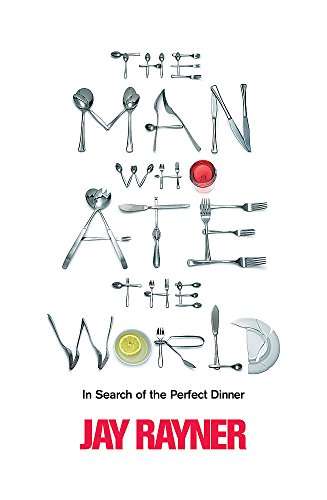Published by Headline Review, 2008, softcover, 344 pages, mcondition: as new. The Man Who Ate The World is a journey through the great cities of the world. It's about extraordinary restaurants and the people who visit them. It's about the globalisation of high culture, the market in taste and the money spent on it. And, of course, it's about dinner. From Las Vegas to Moscow, Dubai to Tokyo and New York to London, Jay Rayner chronicles the revolution in high-end gastronomy that has been sweeping the world since the late eighties. Not simply an account of endless meals in high-end restaurants, it is an exploration of the cities and cultures in which they are found; the inevitable involvement of Russian mafia in Moscow's luxury post-soviet catering business, Tokyo's efforts to fuse ancient Asian culture with Western ideas, and the feverish cult of the Manhattan restaurant in a town which considers itself the most cosmopolitan in the world. Part character-driven travelogue, part food critique, always sharp and often funny, this book is the result of Jay's lifelong campaign to find the perfect meal. Just don't read it if you're hungry.
I'm not sure what I expected from this book, but it surely wasn't what I received. Rayner is a snarky bastard, to be sure, but he spends a lot of time thinking about what he eats, and more importantly, why. A book chronicling a critic jetting to expensive restaurants around the world would get boring if all it did was describe the food. Instead, Rayner astutely recognizes that he is a unique position to see if 3 star restaurants are worth the sometimes insane expense he lays out. The disappointments seem to outnumber the triumphs, and it makes you feel for the people he mentions who have to save up for the chance to have a once-in-a-lifetime peak into the world of the moneyed by eating alongside them. In the end, the question is whether those disappointments are only a product of Rayner's largesse when it comes to eating out. I would say that perhaps the man who seeks the perfect meal can only end up disappointed, but in the end, Rayner seems to be at peace.

